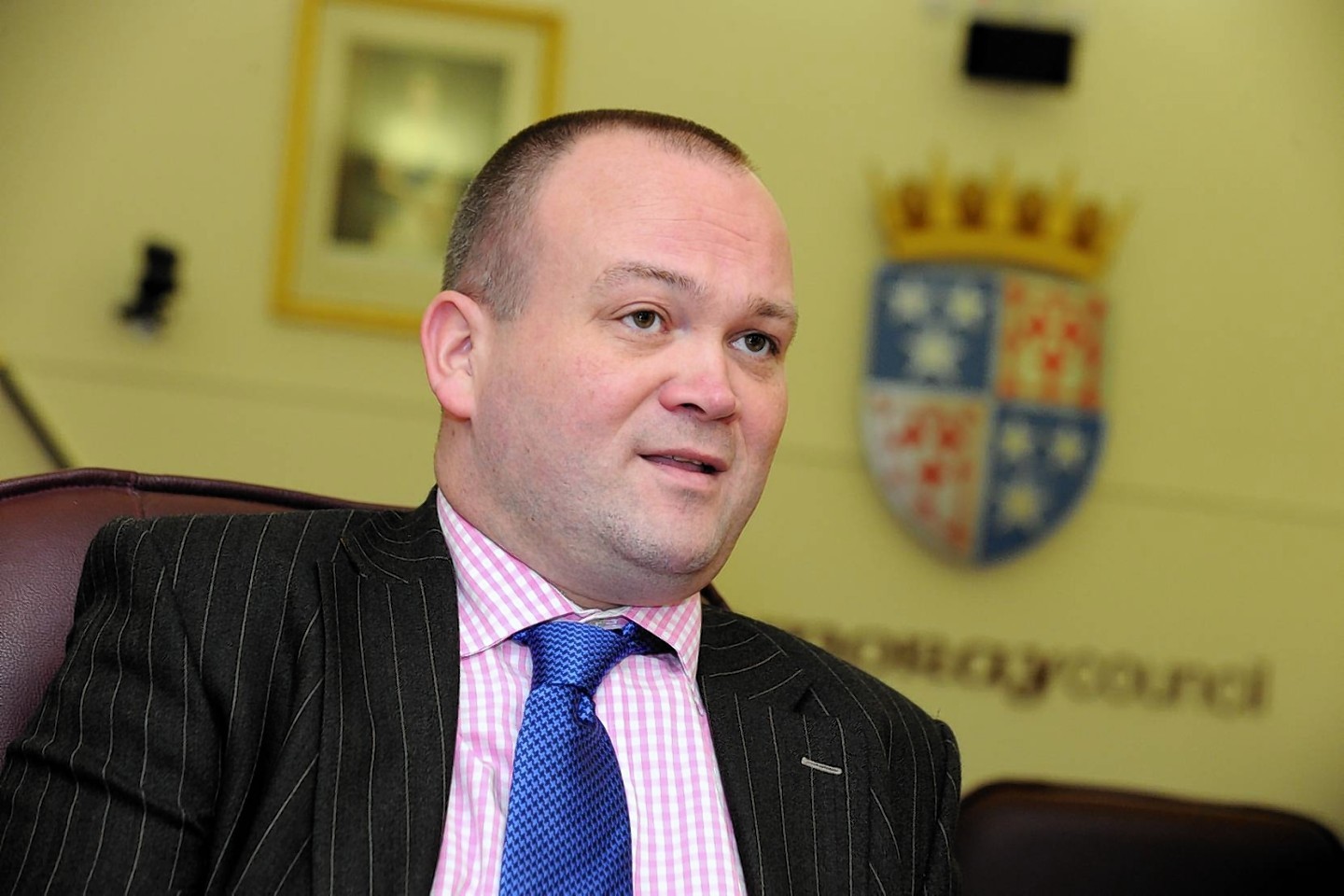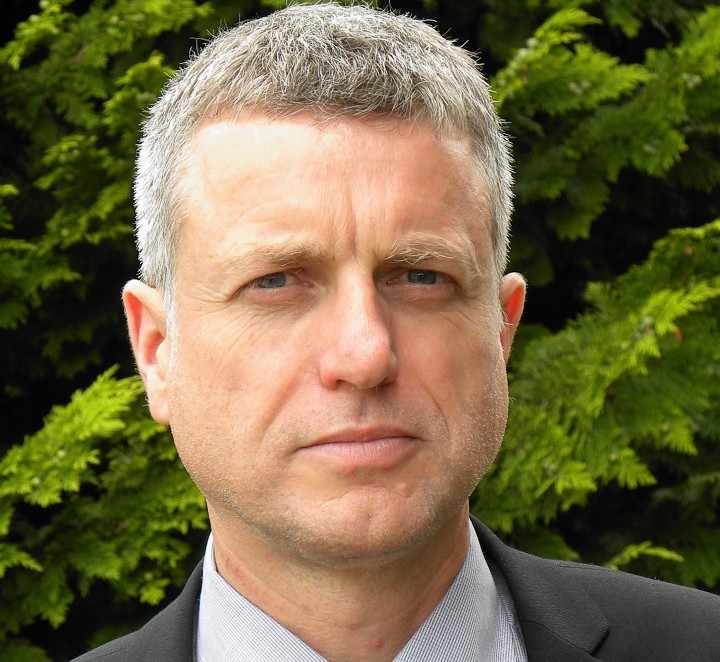A national task force could be launched to help tackle the teaching recruitment crisis in the north of Scotland.
But Education Secretary Angela Constance has warned there is no “silver bullet” to solve the problems faced by the region’s eight local authorities.
The MSP was speaking during crunch talks held at Aberdeen’s Beach Ballroom yesterday.
The emergency summit was attended by representatives from Aberdeen, Aberdeenshire, Moray, Highland, Western Isles, Orkney, Shetland and Argyll and Bute councils.
Delegates from the Educational Institute of Scotland, General Teaching Council for Scotland, Education Scotland and the Scottish Secondary Teachers’ Association also attended.
The new school session started with almost 300 teaching posts unfilled across the regions – including 39 head teacher jobs.
Aberdeen City Council leader Jenny Laing opened the summit by outlining her “wish list”.
She called for the government to establish a “nationally supported” taskforce to come up with an action plan for the north.
She also proposed a new system of “weighting” in the region, where public sector workers would be paid an allowance to move to the area.
The council leader also urged the Scottish Government to reassess the way it distributes funding across the country, to help north councils address the recruitment crisis.
Delegates from each authority were given the opportunity to discuss the challenges they faced in attracting teachers to their area with their colleagues and the education secretary.
Following the talks, Ms Constance promised that the discussions would continue, and that she would consider whether a task force should be established.
She said that co-operation between councils and Holyrood was vital in the face of Westminster austerity, which had held them back from properly addressing the crisis.
Addressing the summit, she said: “I’m here to ensure we’re working together, in partnership, to actually drive forward action, but I do have an open mind as to what is the best forum to achieve that.
“I certainly recognise the challenges that are indeed particular to the north-east, Highland and island communities – you will probably be disappointed to learn that I didn’t come here with my cheque book, and we are about to enter another spending review.
“What we know about that spending review that Mr Osborne is due to deliver in November is that he is highly unlikely to be delivering good news.
“He is very public about his determination to lose £20billion from public expenditure, but I say that actually to demonstrate the necessity for local and national government to work ever more closely together.”
However, speaking after the meeting Mrs Laing said the Scottish Government could not lay the blame for the current situation squarely at Westminster’s door.
She said: “This is a devolved matter, it’s been a devolved matter since the Scottish Parliament was set up.
“We need to address it and get round the table with the government who is responsible for education to sort this out, it’s not enough to say that we need to look at what’s coming from the UK Government.
“They’re in position here, they’re running Scotland, they’re running the education system and we need to see action from them to address the problems that we have now.”
Aberdeen schools could close
Aberdeen schools could face closure if the current recruitment crisis is not resolved soon.
The stark warning came from council leader Jenny Laing, who was speaking after yesterday’s summit.
She said the authority had done everything it could to try to overcome the staffing shortage gripping the north of Scotland.
She said: “We need action now, we don’t need it in six months time, because we’ve heard quite clearly from the local authorities that we are on the verge of closing schools in certain places because of the lack of teachers, and I don’t think there’s anyone out there that would find that acceptable in this day and age.”
Mrs Laing also said that, while there were short-term incentives in place to attract teachers to the area, there was a danger there could be an exodus of staff once these run out.
She added: “The fact that the cost of living is so high means that people who are on a national pay scale are likely to choose other parts of Scotland, where it’s obviously cheaper for housing and things.
“That’s why we’ve looked locally at how we can provide accommodation but all of that takes money out of our education budget, and that’s money that should be spent on education in the classrooms.”
Shire can afford new teachers
A senior Aberdeenshire councillor promised the authority had the budget to hire new teachers if they became available.
Speaking after yesterday’s summit, Richard Thomson, co-leader of the council, said the issue was a “supply” one, not a financial one.
Mr Thomson said: “For us, some of those issues come down to affordable housing, tackling some of the perceptions about the remoteness, but simply getting across to people that Aberdeenshire is a fantastic place to live and work.
“The message that I would give to any young teacher about to qualify, who are just embarking on their career, is that we’ve got so much to offer, we’ve got great pupils, we’ve got sky-high ambitions, we’ve got a fantastic school estate that we are in the middle of modernising.
“This is a great place to come and make your life, and help nurture the next generation.
“I think we need to keep the dialogue going, through whatever means, we’ve found that incredibly useful today.
“For us, teacher numbers isn’t a money issue – we have the money there to fill all the vacancies we currently have, so it’s about tackling supply problems rather than financial ones.”
Registration restrictions
Moray education bosses claim they have been unable to hand qualified teachers jobs due to registration requirements unique to Scotland.
Speaking after the summit, Laurence Findlay, education and social care director for the council, claimed there were 12 teachers – who had qualified in other parts of the UK – who were unable to work because they did not meet the General Teaching Council Scotland registration requirements.
Last night, GTCS confirmed it was in the midst of a review into its rules with a view to becoming more flexible.
However, the organisation rejected claims that it had stood in the way of teachers getting work.
A spokeswoman added: “GTCS currently registers between 300 and 400 teachers from England each year.
“It is the largest number of teachers registering from outwith Scotland. So, the myth that we do not register teachers from England is exactly that, a myth.
“While flexibility is important, GTCS is committed to maintaining our high standards of registration which reassure parents and pupils about the quality of teacher in the classroom.
“We are committed to working with partners to find a lasting solution to the issues faced by some councils.
“We exist to protect the public interest and part of that is to ensure that properly qualified teachers are available to support the learning and development of children and young people across the country.”
Highland situation “critical”
A senior Highland councillor has warned the current staffing situation is “critical” in some schools in the area.
Bill Alexander, care and learning director, was speaking after yesterday’s summit.
He said: “We have critical situations in some of our schools, all of the time.
“We’ve met our teacher numbers this year, some other authorities have not – we could have been in that same situation.
“We need to look, as we move forward, with reducing budgets, with reducing roles in some parts of the Highland authority, but increasing numbers in others.
“It’s about how we ensure sustainable quality education into the future.
“It’s a challenge now but if we don’t come up with solutions it will become a crisis into the future, and that’s why we really do need to be on the front foot in terms of dealing with this.”
However, Mr Alexander raised doubts that Mrs Laing’s weighting proposal could be implemented effectively.
He added: “In the Highland Council we also have problems recruiting health visitors, problems recruiting social workers, problems recruiting to a whole range of disciplines in the west and the north – if you look at a weighting for one professional discipline then what do you look at for other professional disciplines?”
Positive meeting
Delegates from all three island councils travelled to yesterday’s summit.
Vaila Wishart, chairwoman of Shetland Council’s education and families committee, said the meeting had been positive.
She said: “It was an opportunity to talk about the difficulties we all share in our local authority areas.
“It’s too early to say what will come from this but at least we are taking action.
“Our particular challenges lie in recruiting specialised secondary teachers, and not being able to hire head teachers.”
Wilfred Weir, Orkney Islands Council education director, said: “Although our vacancy numbers are low, the recruitment challenge is something we share with our mainland neighbours.
“We have particular challenges around primary supply teaching and secondary specialist recruitment.”
Delegates from Highland Council were also in attendance.
Bill Alexander, the authority’s director of care and learning, added: “We need to look at new ways to bring teachers to the whole of the north and that might mean significant challenges in how we train teachers, in terms of how we register teachers, and in terms of how we recruit and retain teachers.”




